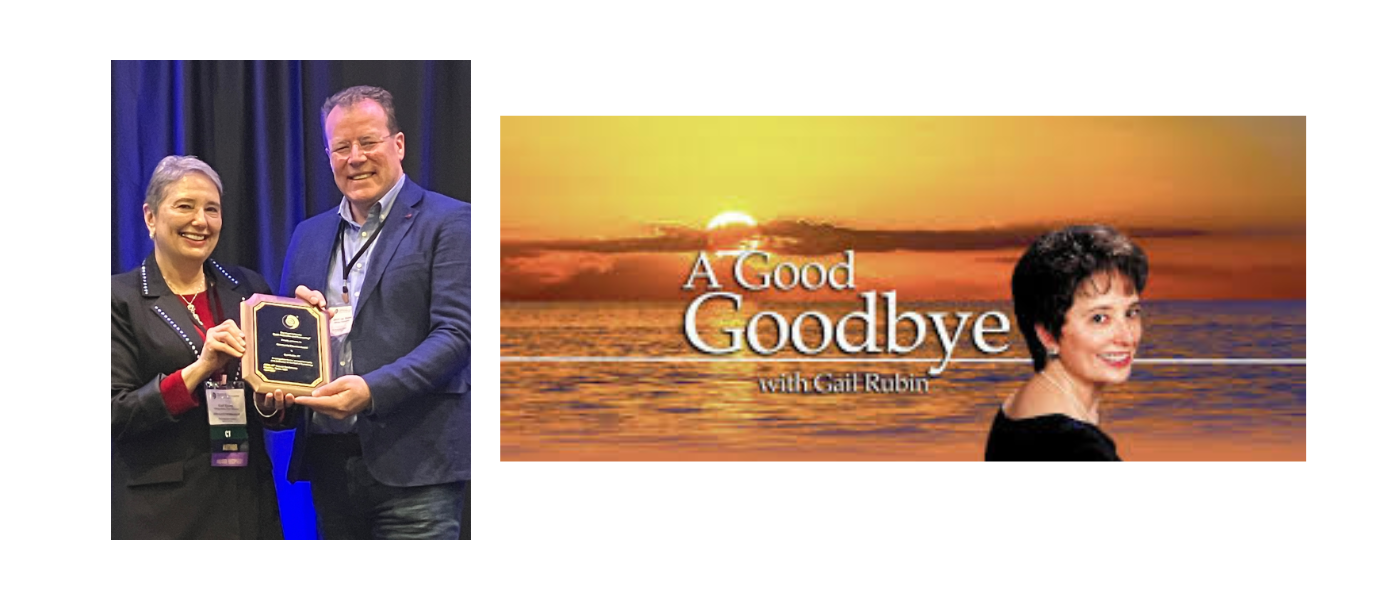Stopping Maryland’s Funeral Home Cartel?
 From the Washington Examiner:A cartel of state-licensed funeral directors has been fleecing Maryland consumers to the tune of $800 per funeral for decades. The law that created this Maryland funeral cartel is unfair, immoral and unconscionable. A federal appeals court will soon decide whether it is also unconstitutional. The stakes are high: With 43,000 deaths per year in Maryland, the funeral cartel stands to lose tens of millions of dollars per year in unearned monopoly profits, and it certainly won’t let that happen without a fight.
From the Washington Examiner:A cartel of state-licensed funeral directors has been fleecing Maryland consumers to the tune of $800 per funeral for decades. The law that created this Maryland funeral cartel is unfair, immoral and unconscionable. A federal appeals court will soon decide whether it is also unconstitutional. The stakes are high: With 43,000 deaths per year in Maryland, the funeral cartel stands to lose tens of millions of dollars per year in unearned monopoly profits, and it certainly won’t let that happen without a fight.
Alone among the states, Maryland law provides that only state-licensed funeral directors may own funeral homes. Now, it’s one thing to say that anyone who wants to conduct a funeral has to be a licensed funeral director, but it’s another thing to say that only licensed funeral directors may own funeral homes. That’s like saying only licensed pilots can own airlines. And guess who spends hundreds of thousands of dollars on lobbyists to thwart public-spirited reform efforts and prevent the Maryland funeral industry from being opened up to fair competition the way it is in other states? Why, state-licensed funeral directors of course.
Evidence in the federal court challenge showed that Maryland’s funeral home ownership laws have been quite effective at preventing companies and entrepreneurs from outside the state from participating in the Maryland funeral market. The result is less competition, which means higher prices and fewer choices for Maryland consumers, most of whom have no idea that they are being systematically exploited by what the trial court judge described as “the most blatantly anti-competitive state funeral regulation in the nation.”
Even the Federal Trade Commission weighed in to express its view that opening the Maryland funeral industry up to fair competition would “ultimately benefit consumers in both price and quality.”
Unfortunately, consumer-clobbering laws like this one are not unique to the Maryland funeral industry. Throughout the nation, anywhere someone is working hard to make a living, you will often find someone else working just has hard to shackle or shut that person down. For example, only state-licensed florists may sell flowers in Louisiana; Texas says only licensed private investigators may debug computers; and, until it was thrown out by the state supreme court recently, Alabama’s interior design law made it a crime to offer advice about throw pillows or paint colors without a state-issued license.
America used to be the land of opportunity, the one place in the world where people knew they could get ahead if they worked hard, played by the (fair) rules, and embraced the spirit of entrepreneurship, which is really the heart and soul of the American dream. So what happened?
One of the most significant developments was the decision by the U.S. Supreme Court in the 1930s to essentially throw in the towel when it came to protecting economic liberty, including the right to earn an honest living free from unreasonable government interference. That decision was seen by interest groups as green light to lobby for special laws designed to suppress competition and exploit consumers. As the 10th U.S. Circuit Court of Appeals recently wrote, “while baseball may be the national pastime of the citizenry, dishing out special economic benefits to certain in-state interests remains the favored pastime of state and local governments.”
That may be true, but it is certainly nothing to be proud of. The case challenging Maryland’s “blatantly anti-competitive” funeral home ownership restrictions gives the courts an opportunity to make clear that there are limits on how far state legislatures can go in handing out special benefits to groups with the strongest lobbyists or the best access to politicians. In our system of government, judges act as important guardians of our most cherished liberties, like free speech, religion and the right to vote. The ability to earn a living — free from blatantly anti-competitive laws that serve no other purpose than to prevent fair competition and exploit consumers — is certainly among those sacred rights.
Clark Neily is a senior lawyer at the Institute for Justice, the national public interest law firm currently representing four Maryland funeral home entrepreneurs.
Source: WashingtonExaminer.com



